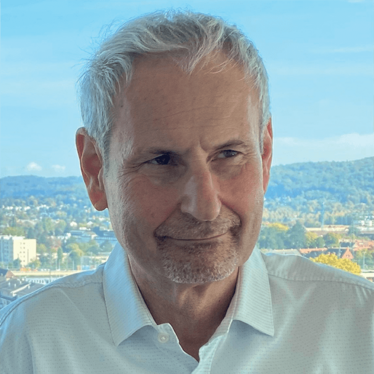Tap the App
What can science learn from patients, and how can patients benefit from being in control of their own health?
Francesco Patalano | | 4 min read | Opinion

Patients are the experts of their own bodies. When they record what their bodies feel or experience, how it functions, these records are generally known as patient-reported outcomes (PROs). PROs could be one of the single most powerful factors in driving sustainability within the wider healthcare system. However, while they are often used as endpoints in clinical trials designed to develop new drugs, they are not currently integrated across the clinical practice ecosystem. This is a problem because we are missing out on a huge opportunity to better understand the real burden of diseases on patients, their caregivers and society as a whole.
By drawing on “real world” PRO data (RW-PRO), outside formal clinical trials, pharma companies can learn about what works (and does not work) for patients. This enables them to understand patient journeys better, and more quickly, and therefore, become more patient-centric in their processes to develop more effective drugs and treatments.
There are significant challenges we need to overcome to unlock RW-PROs, including:
- Standardization: Standardization is the key to finding the same terms of measurement. Once an outcome is standardized, it can be compared as part of larger data sets. Currently, there are numerous ways to gather similar PROs but if clinicians and patients use the same PRO language, it becomes much easier to compare data.
- Linking: Combining RW-PRO data with clinical data produces far greater insights that either data set alone.
- Resources: For example, healthcare professionals have been responsible for gathering and sharing PRO data but this is just one of their many responsibilities. Although they play a vital role in helping interpret data, it is not always reasonable to expect them to find ways to feed this data into multiple data sets.
- Security: This data is intimate and extremely precious. It must be protected for the sake of the patient and for society as a whole. It should be used by those wishing to advance healthcare – and away from those that wish to use such data for financial gain.
That is where Health Outcomes Observatory (H2O) comes in. H2O is a public–private consortium that brings together patients, providers, regulators, researchers, and healthcare professionals committed to putting patients at the center of all actions.* We aim to create a common language that can bring about improved patient outcomes, an increased flow of data, and more sustainable and efficient healthcare systems.
H2O has been set up across multiple locations in Europe to gather information across larger patient populations than ever before. Its aim is not to be the next hot healthcare app but to build trustworthy channels that will give patients access to important health data, as well as a chance to contribute to advancing science. H2O offers a unique opportunity to the healthcare industry in several ways:
- Creating a governance model that fosters participation and collaboration between industry and other stakeholders as trusted partners.
- Facilitating access to pooled and anonymised or aggregated data in an ethically, legally appropriate, and structured way.
- Improving patient centricity by including patient perspectives in a meaningful and action-oriented manner.
- Contributing significantly to the wider adoption of value-based healthcare by integrating patient insights and experiences into healthcare decision-making processes.
- Aligning industry more closely with the goals of health systems by funding a patient-centred initiative and engaging with the entire healthcare ecosystem to promote the use of health data in improving patient care.
H2O is opening-up the flow of data across the whole healthcare system. Finally, we can unleash the power of “real world” PROs to deliver a positive impact across the healthcare ecosystem.
*This project has received funding from the Innovative Medicines Initiative 2 Joint Undertaking under grant agreement Nº 945345-2. This Joint Undertaking receives support from the European Union’s Horizon 2020 research and innovation programme and EFPIA and Trial Nation and JDRF.
This article reflects only the author's view, and the JU or Novartis Pharma AG are not responsible for any use that may be made of the information it contains
Head of Pediatric and Patient-Reported Outcomes - Centers of Excellence · Novartis, Basel



















